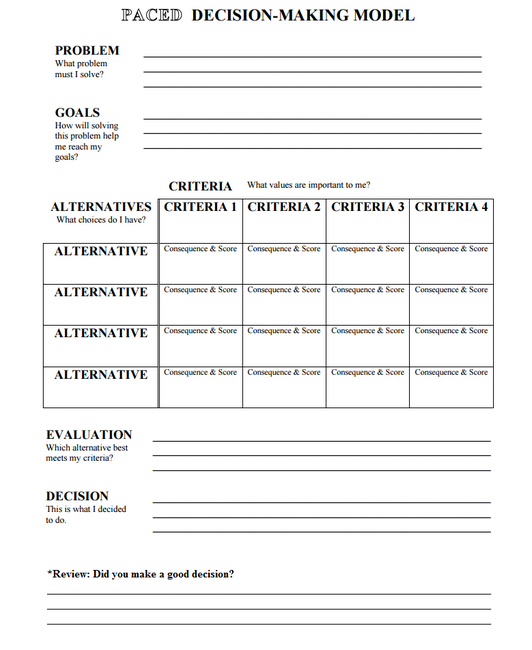E C O N O M I C S
"Economics is defined as a social science that studies how individuals, governments, firms and nations make choices on allocating scarce resources to satisfy their unlimited wants. Economics can generally be broken down into: macroeconomics, which concentrates on the behavior of the aggregate economy; and microeconomics, which focuses on individual consumers" (Investopedia).
As social studies educators, our goal is civic competence for all of our students. Without knowledge of economics and the ability to evaluate economic concepts when making financial decisions, students cannot fully function in our democratic society. For instance, voters today cannot understand and choose between the domestic economic policies of presidential candidates without understanding macroeconomic concepts like the the relationship between taxation and job creation. However, the importance of economics is even simpler to understand when considering the decisions people need to make daily. In short, people need to have the wherewithal to differentiate between needs and wants and work within a budget.
For my economics project, I focused on teaching students how to make the necessary choices that are required when infinite wants surpass available resources (money), using decision-making models. While economic concepts can be very abstract, students are often motivated by working with money and do have personal knowledge of spending money and having unfulfilled wants which teachers can target to make economic lessons meaningful for students.

As part of my presentation, I provided a guideline for how students should work through the decision-making model. Much like the inquiry process, students are required to analyze information before drawing a conclusion/making a decision. I explained that the PACED model leaves out a key component of good decision-making: Reflection to evaluate whether a decision was correctly made. I purposefully added this onto the guide because reflection is key to students becoming self-evaluative and developing metacognitive skills. As I discussed in an earlier blog, making decisions in a vacuum without reflection would not be valuable over the long-term because students would not consider how they could improve in the future and grow in their abilities. Dunning, Johnson, Ehrlinger, and Kruger (2003) found that without metacognitive skills, "people [who] lack the skills to produce correct answers, are also cursed with an inability to know when their answers, or anyone else’s, are right or wrong” (p. 85). Our hope is that teaching students to reflect back on decisions they previously made will help them to grow as decision-makers over time.

Just as the teacher or students pose questions as part of the inquiry process, the teacher or students can pose a problem in which there exist many alternatives for students to consider the best possible alternative. Considering alternatives to best solve the problem requires students to analyze the restraints caused by scarcity and the opportunity cost of what is lost when an alternative is selected. Kelli explained both of these ideas in her slides, emphasizing that scarcity forces choices to be necessary and that when one alternative is chosen the other becomes the opportunity cost. Thus, with every decision, something is always lost: The path not taken. Furthermore, the best way to pose a meaningful problem is to make it relate to the students' lives outside of the classroom. This will also encourage students to apply the decision-making process to choices in front of them when they leave classroom. Nicole, in her slides, provided examples of how economics influences the lives of all people, including children. As I explained earlier, students know what it is like to want something and not be able to have it. Similarly, students are fully aware that some people are able to obtain more of their desires because they have access to more resources than others. Therefore, I also provided links of concrete examples of problems that students can answer using the PACED model, pictured above, to master the economic decision-making: Food, gift certificates, and classroom supplies. I particularly like the classroom supplies activity in which students are given a set budget and then they
need to make choices about what supplies should be selected and which should be left as opportunity costs because it reminds me of the school funding activity in which I actively participated during my Orientation to Teaching course. I still remember the experience semesters later, and was able to form generalizations about the role of funding in school districts' decision-making. I want to provide my students with a similar experience.
Additionally, I just want to stress that the discipline of economics, like many of the other disciplines within social studies, is all around us and constantly part of daily life. Thus, teachers will be presented with many unplanned teachable moments in the area of economics. Mark Schug, author of Economics for Kids: Ideas for Teaching in the Elementary Grades (1986) asserts that teachers should capitalize on informal opportunities to review economic concepts when they present themselves in the news or the classroom. If a student needs to make a decision in which there are multiple alternatives, encourage him or her to use an economic decision-making model. Let students' questions and problems lead to genuine and value-based economic lessons.
References

As part of my presentation, I provided a guideline for how students should work through the decision-making model. Much like the inquiry process, students are required to analyze information before drawing a conclusion/making a decision. I explained that the PACED model leaves out a key component of good decision-making: Reflection to evaluate whether a decision was correctly made. I purposefully added this onto the guide because reflection is key to students becoming self-evaluative and developing metacognitive skills. As I discussed in an earlier blog, making decisions in a vacuum without reflection would not be valuable over the long-term because students would not consider how they could improve in the future and grow in their abilities. Dunning, Johnson, Ehrlinger, and Kruger (2003) found that without metacognitive skills, "people [who] lack the skills to produce correct answers, are also cursed with an inability to know when their answers, or anyone else’s, are right or wrong” (p. 85). Our hope is that teaching students to reflect back on decisions they previously made will help them to grow as decision-makers over time.
Just as the teacher or students pose questions as part of the inquiry process, the teacher or students can pose a problem in which there exist many alternatives for students to consider the best possible alternative. Considering alternatives to best solve the problem requires students to analyze the restraints caused by scarcity and the opportunity cost of what is lost when an alternative is selected. Kelli explained both of these ideas in her slides, emphasizing that scarcity forces choices to be necessary and that when one alternative is chosen the other becomes the opportunity cost. Thus, with every decision, something is always lost: The path not taken. Furthermore, the best way to pose a meaningful problem is to make it relate to the students' lives outside of the classroom. This will also encourage students to apply the decision-making process to choices in front of them when they leave classroom. Nicole, in her slides, provided examples of how economics influences the lives of all people, including children. As I explained earlier, students know what it is like to want something and not be able to have it. Similarly, students are fully aware that some people are able to obtain more of their desires because they have access to more resources than others. Therefore, I also provided links of concrete examples of problems that students can answer using the PACED model, pictured above, to master the economic decision-making: Food, gift certificates, and classroom supplies. I particularly like the classroom supplies activity in which students are given a set budget and then they
need to make choices about what supplies should be selected and which should be left as opportunity costs because it reminds me of the school funding activity in which I actively participated during my Orientation to Teaching course. I still remember the experience semesters later, and was able to form generalizations about the role of funding in school districts' decision-making. I want to provide my students with a similar experience.
Additionally, I just want to stress that the discipline of economics, like many of the other disciplines within social studies, is all around us and constantly part of daily life. Thus, teachers will be presented with many unplanned teachable moments in the area of economics. Mark Schug, author of Economics for Kids: Ideas for Teaching in the Elementary Grades (1986) asserts that teachers should capitalize on informal opportunities to review economic concepts when they present themselves in the news or the classroom. If a student needs to make a decision in which there are multiple alternatives, encourage him or her to use an economic decision-making model. Let students' questions and problems lead to genuine and value-based economic lessons.
References
Chick, N. (n.d.). Metacognition. Retrieved April 13, 2015, from http://cft.vanderbilt.edu/guides-sub-pages/metacognition/
Dunning, D., Johnson, K., Ehrlinger, J., & Kruger, J. (2003) Why people fail to recognize their own incompetence. Current Directions in Psychological Science, 12(3), 83-87.
Economics Definition | Investopedia. (2003, November 18). Retrieved April 14, 2015, from http://www.investopedia.com/terms/e/economics.asp
Schug, M. C. (1986). Economics for kids: Ideas for teaching economics in the elementary grades. Washington, DC: Joint Council on Economic Education and the National Education Association.
Schug, M. C. (1986). Economics for kids: Ideas for teaching economics in the elementary grades. Washington, DC: Joint Council on Economic Education and the National Education Association.
The Economics Detective. (2012, July 14). What is Economics? Retrieved April 14, 2015, from https://www.youtube.com/watch?v=2YULdjmg3o0




No comments:
Post a Comment